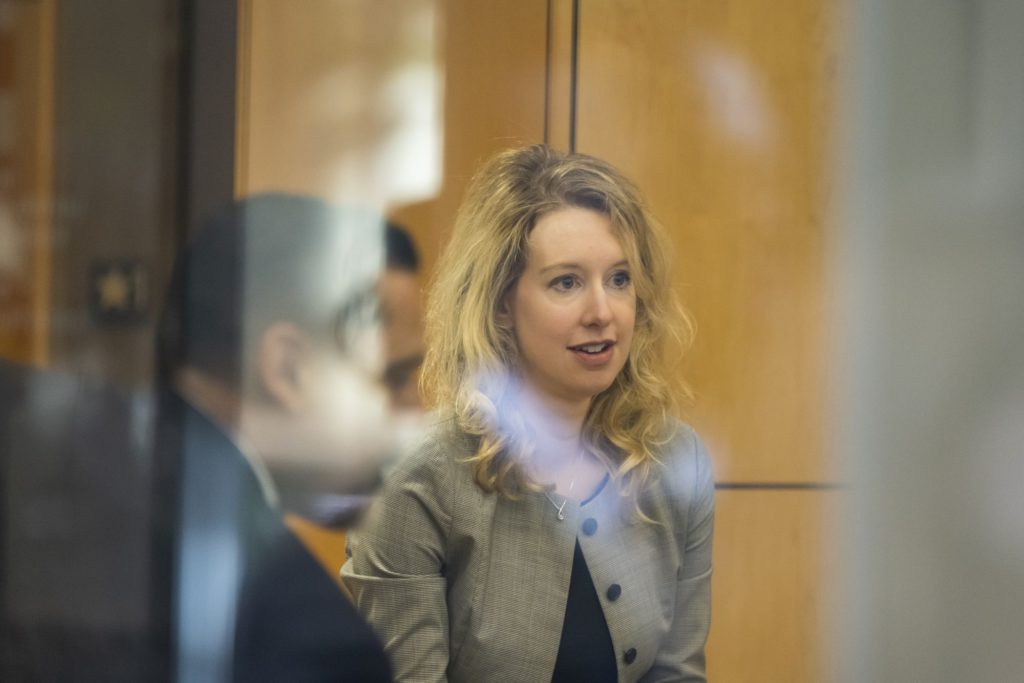Theranos Inc. founder Elizabeth Holmes asked for a new trial on the grounds that she was unfairly disadvantaged by being tried before her ex-boyfriend and Theranos President Ramesh “Sunny” Balwani.
(Bloomberg) — Theranos Inc. founder Elizabeth Holmes asked for a new trial on the grounds that she was unfairly disadvantaged by being tried before her ex-boyfriend and Theranos President Ramesh “Sunny” Balwani.
Facing a sentencing next month that could put her in prison for as much as a decade, Holmes has filed a flurry of long-shot motions in recent weeks to try to get a new trial. In a filing late Wednesday in federal court in San Jose, California, her lawyers claimed she would’ve been exonerated if Balwani had gone on trial first.
Holmes, 38, was found guilty in January of defrauding investors and conspiracy for her role in the Theranos’s collapse. Balwani was convicted in July of similar counts, as well as defrauding patients.
At her own trial, Holmes’s defense team tried to cast Balwani as being behind any fraud at Theranos, the blood-testing startup that attracted big-name investors and reached a peak valuation of $9 billion before it emerged that its finger-prick tests didn’t work. She also claimed he was an abusive partner — which Balwani has denied.
Changing the trial order would’ve “fundamentally changed” the evidence jurors learned about Balwani’s role in the alleged misrepresentations to investors, her lawyers said.
“It would probably have resulted in an acquittal on the counts of conviction,” they argued.
In a Tuesday filing, Holmes’s lawyers also argued that a new trial was warranted because a key witness at the trial, former Theranos lab director Adam Rosendorff, visited her house last month and expressed misgivings about his testimony.
US District Judge Edward Davila already rejected Holmes’s first attempt to get her conviction thrown out on the grounds that there was insufficient evidence to convict her.
Holmes’s lawyer on Wednesday also attempted to revive a long-simmering fight over a defunct Theranos database of patient information, which they say allowed prosecutors to misrepresent the accuracy of the company’s test results. Balwani raised a similar defense argument at his trial.
According to Holmes’s lawyers, prosecutors only recently produced emails relating to the government’s role in allowing the database to go irretrievably dark in 2018. Prosecutors’ failure to turn over the emails cast earlier arguments “in a different light” and also warrant a new trial, Holmes argued.
The case is US v. Holmes, 18-cr-00258, US District Court, Northern District of California (San Jose).
More stories like this are available on bloomberg.com
©2022 Bloomberg L.P.











